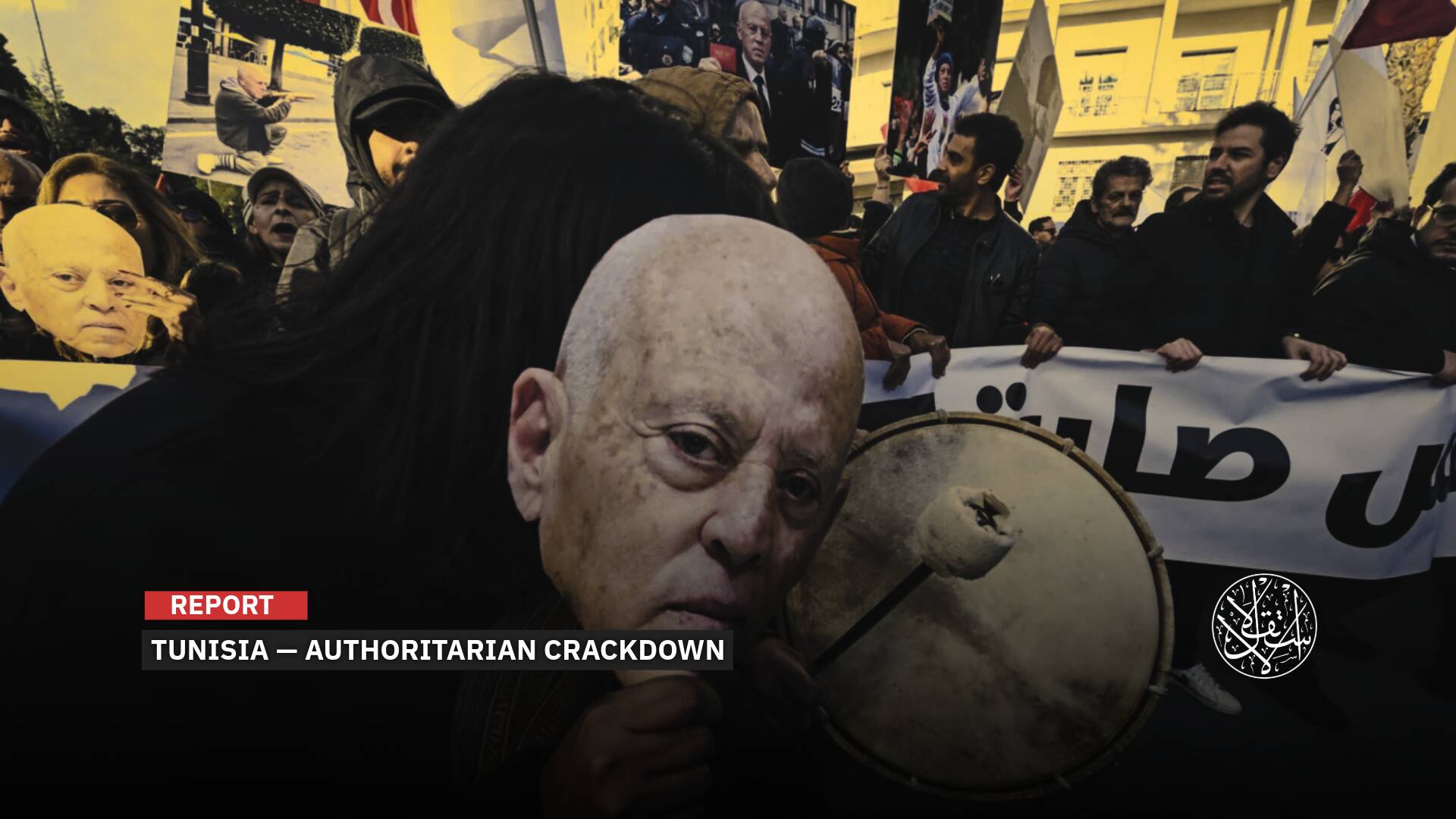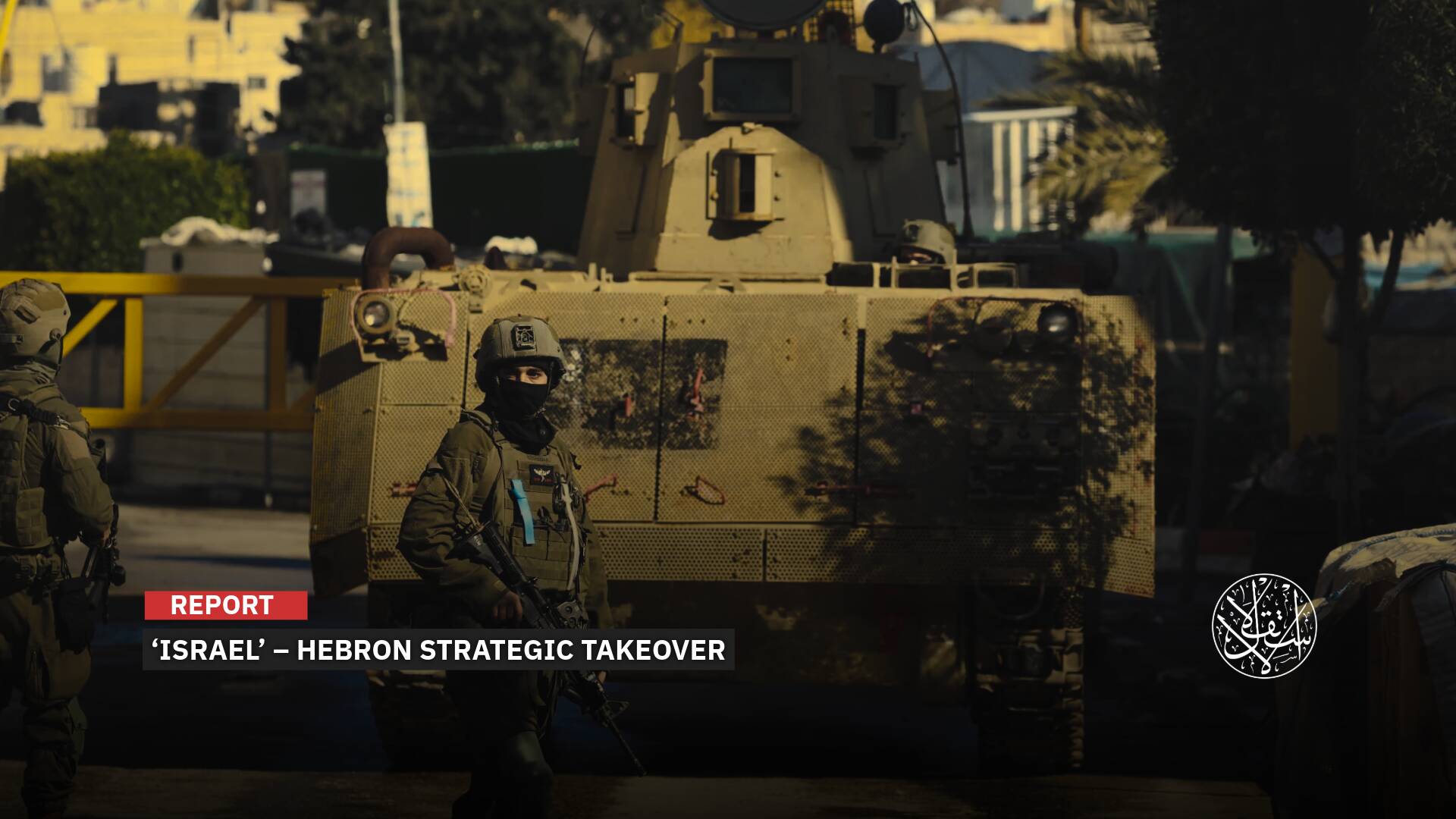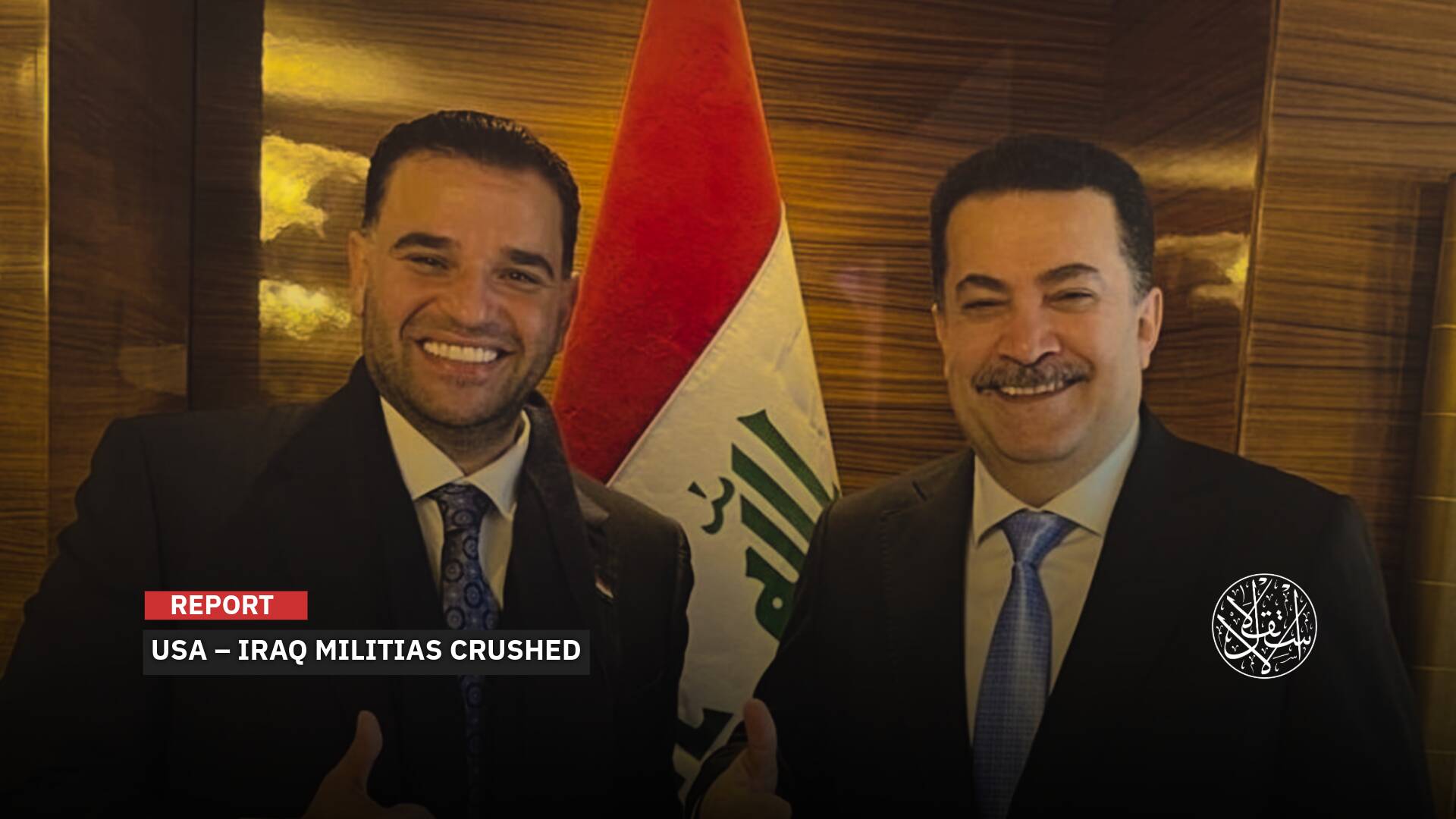Despite Its Clarification; That's Why Yemenis Were Divided Over Hamas's Position on the Houthis

Widespread controversy erupted among Yemenis after the representative of the Islamic resistance movement Hamas in Yemen, Moaz Abu Shamala, handed over a shield honoring Houthi member Mohammed al-Houthi and delivered the movement's thanks and appreciation to the group.
Abu Shamala met al-Huthi on June 7, 2021, and handed him the shield in recognition of his "efforts to support the Palestinian cause and support the resistance in particular."
"This good meeting is the culmination of relations between Hamas and Ansar Allah (the Houthis), may God increase this relationship and bring us together and them always on the path of liberation and victory, and that all these conspiracies and attacks on the resistance will be broken, and God willing victory is near," Abu Shamala said.
"My honor from Hamas is a great honor to me, I intended to dedicate it to the martyrs of the Republic of Yemen during the aggression against Yemen, but I am here to give up the shield and send it to the leadership of the Saudi regime if the brothers from Palestine detained there are released," Mohammed Ali al-Houthi tweeted.
"We renew the offer of the exchange initiative announced by (the group's leader) Commander Abdul Malik al-Houthi in this regard."
Yemenis were divided into two parts about Hamas's position, the first of which adopts the initial view put forward by the movement, that this thanks is only a recognition of the efforts made by the Houthis to the Palestinian resistance, and does not mean endorsing the group's political position or supporting its violations against Yemenis.
Another section saw the resistance as having put its hand in the hands of a murderer and blew up the moral standards it must observe against a group that killed, displaced, arrested and tortured Yemenis.
Abdullah al-Qaisi wrote a short post on his Facebook account: "Any policy that has no moral ceiling is destruction of man and society sooner or later, and I am surprised by those who ask for the separation of politics and morality?! Do they realize what they're doing, they're simply giving the dagger to their killer?!"
One of the participants in the Hamas support events, Yemeni activist Abdullah al-Sawi, wrote a letter to the movement, saying in part: "The first was that since it is a modern reservation - who does not thank the people does not thank God - to thank Yemen first, which was and continues to be supportive and supportive of the resistance."
"We do not tell Hamas how to behave or challenge it, but (we refuse to) honor militias that kill our children, blow up our homes and mosques and occupy our schools and universities, which until recently were a scene of resistance events, whose halls embraced many of their victory festivals before the militias turned a number of them into ignorance dens."
"We say no to Hamas, and we ask it to apologize, and what its representative did today is a stab and wound that will not be healed unless it apologizes to Yemen."

Unacceptable Justification
After this wave of anger, Hamas said in a statement that any action or statement understood to be biased towards any of the parties to the conflict in Yemen "is a personal position that does not reflect the movement and its leadership."
However, many Yemenis did not accept this justification, and demanded that Hamas apologize, especially since those who honored the Houthis were its official representative in Yemen, and demanded that it clearly define its position on the Houthi group.
In a video, Mohammed Abdulaziz Rantisi, the son of martyr Abdel Aziz, one of Hamas' most prominent founders, apologized to the Yemeni people for what he described as the "slip" of the group's Office in Sana'a.
"The slip from the office happened and he should have been neutral from everything that was happening in Yemen and stayed at a distance from everyone," he said in the video posted on his Twitter account.
He added: "The slip occurred and accidentally made a mistake and I came to add my voice to your voice and your anger at this situation and I hope to you very much that this mistake will pass and I hope that you will accept my apology in my personal account from Gaza and the apology of all the free people of the Palestinian cause for what happened."
Rantisi, from Hamas and its Office in Sanaa, wished to "stay at a distance from everyone on the issues of our nation and our loved ones, whether in Yemen, Syria or elsewhere."
Yemen's Reform Party then issued a statement on June 10, 2021, denouncing the Hamas representative's statement "at a time when yemenis' blood is bleeding and the bodies of their children are charred by Houthi ballistic missiles and car bombs in Marib, Taiz, Hodeidah and Al-Da'ideh."
The statement, published by the head of the party's supreme body, Mohammed al-Yadoumi, said that what the Hamas representative did was a provocation to Yemenis facing the salve Houthi arrogance as well as the Palestinian people, brotherly Zionist arrogance.
The party was surprised that this action was issued by "a movement against the occupation that occupied Palestinian territory and displaced and killed the Palestinian people in cold blood, which is the same behavior that the Houthi terrorist group is doing against the Yemeni people".
"Hamas should have respected the right of the Yemeni people to resist Houthi criminality and distance themselves from this shameful act, especially as they resist injustice and criminality, and it is not right for Yemenis to accept what they reject for the Palestinian people."
Political Swallowing
Many link the Hamas representative's move to the Houthis' association with Iran, as do Hezbollah in Lebanon.
On May 21, 2021, Hamas political bureau chief Ismail Haniyeh thanked Iran for providing money and weapons to Palestinian armed factions in the Gaza Strip.
"I thank those who gave money and weapons to the resistance, Iran has not failed to extend resistance with money, weapons and techniques," Haniyeh said in a speech.
That rapprochement also included Iran-backed Hezbollah.
Ismail Haniyeh and his deputy Saleh al-Arouri visited Hezbollah's secretary general in Lebanon, Hassan Nasrallah, in early September 2020. "A detailed review of all political and military developments in Palestine, Lebanon and the region was carried out," he said.
Hezbollah issued a statement on September 6, 2020, saying that "the stability and toughness of the axis of resistance has been emphasized in the face of all the pressures, threats and high hopes placed on it."
"The strong relationship between Hezbollah and Hamas, based on faith, brotherhood, jihad and one destiny, is strong, and the mechanisms for cooperation and coordination between the two parties are developed," he said.

On May 20, 2021, Hamas leader Osama Hamdan sent a letter of thanks to Syrian regime president Bashar al-Assad and praised his position in "supporting and supporting the Palestinian resistance."
Al-Mayadeen tv interviewed Hamdan, during which he stressed that "Assad's position in support of the resistance is neither strange nor surprising, and who greets us with a greeting we respond well from," stressing that "it is normal for relations in Damascus to return to its former state."
Assad received a delegation of leaders and representatives of Palestinian forces and factions, including The Islamic Jihad's secretary general, Ziad al-Najla.
During the meeting, Assad said: "Syria's doors are open to all resistance factions regardless of their names," said Abu Ahmed Fouad, deputy secretary general of the Popular Front for the Liberation of Palestine( PFLP).
Assad paid tribute to the resistance of Hamas and Islamic Jihad, and all the resistance factions in Palestine.
This position provoked Syrian revolutionary factions, saying that it ignored all Assad's crimes and legitimized Assad as a resistance fighter, while "a murderer, a serial killer and a war criminal."
Observers fear that Iran will be able to swallow Hamas politically and volunteer to be part of its destructive project in the region, especially after its rapprochement with Iran and its affiliates in Syria, Lebanon and Yemen, but the group says it is not subject to anyone's agenda and accepts unconditional support.

Bidding and Promoting
The Houthi group had stormed Hamas headquarters and other charitable institutions supporting Palestine, such as the Al-Quds-Yemen Branch Foundation, the Al-Aqsa Charitable Branch in Sana'a, and their branches in the provinces under the group's control, looting its contents and arresting its employees as soon as it took control of state institutions.
In April 2015, Houthi gunmen stormed al-Aqsa's headquarters on Rabat Street in Sana'a, looted the association's contents and property, including donations funds, arrested its employees, not to mention storming its branches in several provinces, and arresting its officials.
On August 10, 2015, the Houthis arrested Mohammed al-Adil, who holds several positions, including a representative of the Global Coalition for the Support of Jerusalem and Palestine in Yemen, a board member of the Jerusalem International Foundation in Beirut, and coordinator and head of convoys run to break the siege of Gaza, four times.
Since its founding nearly 30 years ago, al-Aqsa has supported more than 3,000 Palestinian orphans, some 350 families permanently, and oversees the construction of dozens of projects in Palestine, according to a statement condemning the incursion, looting of its property and the arrest of its employees.
On February 23, 2015, the Houthi group stormed Hamas' Office in Sanaa and arrested its employees.
In the same period, the Houthis stormed the Jerusalem International branch in Yemen, the headquarters of the Palestinian club in Sana'a, and arrested their employees of Yemeni and Palestinian nationality.
To date, al-Houthi has controlled these institutions, although some of them are international and have branches in Yemen and have not allowed them to resume their activities.
One of the criticisms of Hamas by Yemenis was that the Houthis broke into all institutions and arrested and supported employees who supported the movement.
Recently, however, the Houthi group announced an initiative to release Saudi prisoners in exchange for leaders and members of Hamas arrested by Riyadh, to which the group responded with acceptance, welcome and thanks.










